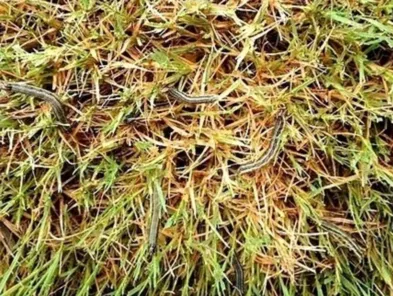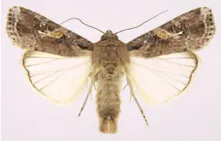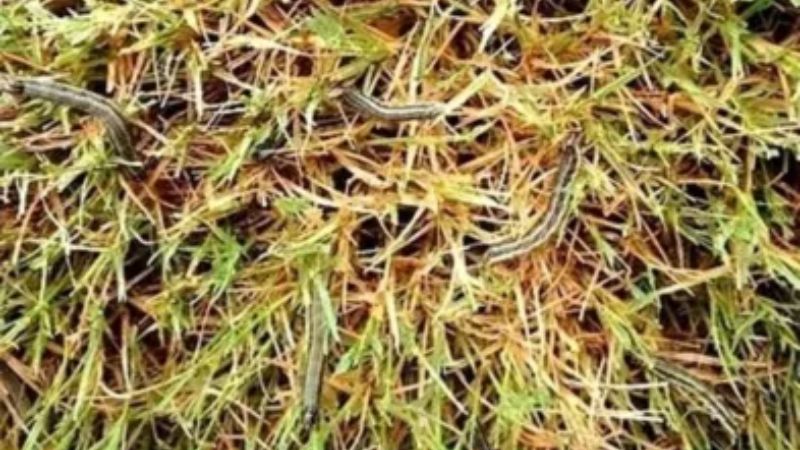Armyworms
Starting in July my family actually starts checking our hayfields weekly to see if we see any moths. Even if we don’t see any moths we will walk the hay field doing random spot checks.

Did you know that during mid-summer you could actually wake up in the morning to find spots in your lawn are completely gone, thanks to the fall armyworms. Which in our area is what the majority of the lawns are made up of. Although the fall army worm attacks many other crops, the fall army worm feeds primarily on Bermuda grass, but when the pickings get slim due to hot, dry weather, the moths and caterpillars head for greener pastures, like your lawn that you’ve dutifully watered all summer.

What do army worms look like? You’ll never see them coming unless you watch your lawns closely for the moths. A single female can deposit up to 2,000 eggs on one blade of grass. The eggs hatch a few days later. At first, the tiny caterpillars are green with a black head, but as they devour the grass over a course of 2 to 3 days, they change to brown with white lines on the side and a reddish-brown head. They grow to more than an inch long.
Fall armyworms get their name because literally thousands of them march across a lawn like an army, eating as they go. These caterpillars are sneaky, moving only at night and crawling into silk-lined burrows in the day. You may first notice their presence as a brown patch of lawn that gets bigger every day. Or you may walk out one morning to find nothing but dirt or grass stems where a lawn was just the night before.
Fall army worms infest just about every state east of the Mississippi. That’s because where autumn comes early up north, they may be limited to one or two generations per year. In the South, there are four to five generations per year
I have good news and bad news about armyworm damage. If you have a Zoysia grass lawn, you’re in the clear. Fall armyworms don’t like Zoysia. The bad news is that they love Bermuda grass, St. Augustine, Kentucky bluegrass, and tall fescue. The first two usually survive the onslaught and come back. The latter two often die.
The key to defeating fall armyworms is spotting them early before they pull that last all-nighter on your lawn.
If you think you might have armyworms give us a call at 901-494-9088 or fill out our online contact form and we’ll get back to you right away.




